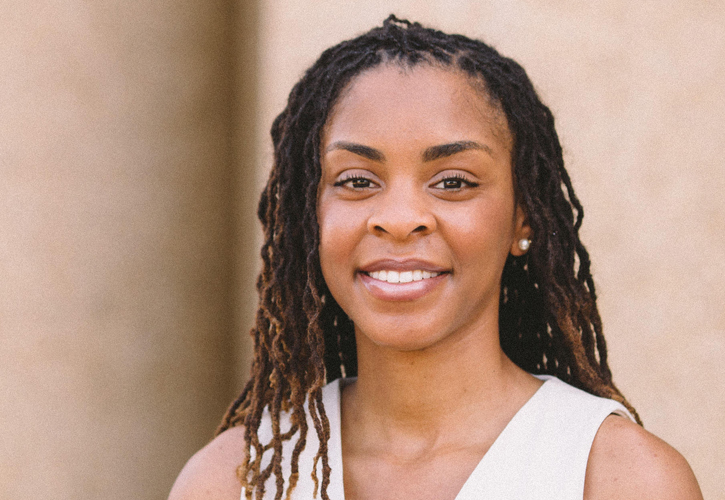College of Arts and Sciences Newsroom

Engaged Scholar
How can the University of Dayton better engage with the Dayton community and avoid triggering power imbalances?
Castel Sweet, coordinator for community-engaged learning and scholarship at the University’s Fitz Center for Leadership in Community, plans to address that question as part of her work with the first cohort of the Midwest Region Campus Compact’s Engaged Scholars initiative.
Sweet was selected as one of 12 participants in the initiative — one of two pilot programs sponsored by Campus Compact, a national coalition of more than 1,000 universities seeking to improve communities while educating students for civic and social responsibility. She was chosen from a competitive pool of candidates from the Midwest region who were nominated by college and university presidents and chief academic officers.
Goals for the 18-month initiative include identifying best practices for addressing societal issues through university outreach, building models of support for faculty and staff to connect with communities, strengthening networks with other universities, and pursuing scholarship. The “engaged scholars” already met once as a group in Minneapolis and will continue to meet regularly both in person and online.
Sweet said she will take what she learns through the initiative and her local research, and produce practical guides — such as a curriculum, activities and exercises — that faculty and staff can use to strengthen their existing projects or to develop new civic engagement projects.
“Rather than producing a report that might sit in a drawer, I want to give my work more meaning,” she said. “I want to take what I’m learning and make it accessible. I’m a firm believer in application.”
Community engagement by any university can be problematic, and not just because of the additional time and work it requires of faculty, staff and students.
“Institutionally, there can be an attitude of wanting to ‘save’ the community,” Sweet said. “My project will address how we might mitigate the idea, however unintentional, that we have all the answers and instead find ways to engage in more authentic relationships.”
Developing authentic relationships starts with honest consideration of one’s identity, background and experiences. Race and economics also are major factors of any power dynamic, she said.
“We need to be cognizant of those traits and characteristics and find ways to overcome preconceptions in a productive way so that we are not doing things that we don’t intend,” Sweet said. “Place matters and it’s important to connect to the place you’re in. We can’t just bring kids to a perfect world on campus and then expect them to live successfully in the world when they leave us. We can’t just stay in our own cocoon. We must teach students to live in the world and help to make it a better place.”
Since coming to the University in October 2017, Sweet has overseen the Semester of Service program, worked with several existing community outreach programs, and helped individual faculty connect with community organizations. She also has met with scores of Dayton-area organizations to learn about their work and needs.
Sweet said she also has learned about what individuals on campus and in the community have done over the years, often on their own. Their success and missteps can help people today be more effective and avoid missteps.
“Having Brother Ray (Fitz) here has been wonderful,” she said, referring to the former University president, who is now Distinguished Professor of Social Justice. “He knows everyone and everything on campus and in the community.”
Sweet already has made a positive impression on campus.
"Castel is a model across our campus for the way she combines a sharp intellect, a community-based approach, and a clear commitment to justice," said Joel Pruce, assistant professor of human rights studies in the Department of Political Science.
A Memphis native, Sweet holds doctoral and master’s degrees in sociology from Louisiana State University, and a bachelor’s in criminal justice/criminology from Hampton University. Her dissertation research explored hip hop and rap artists’ embeddedness in local communities, and their interpretation of the connectedness between their work and their communities. As a graduate assistant in LSU’s College of Humanities and Social Science Office of Social Service Research and Development, she assisted with the planning and implementation of a $1.5 million grant from the U.S. Department of Health and Human Services, Office of Minority Health, for a three-year afterschool and summer program for African-American males.
- Annette Taylor
